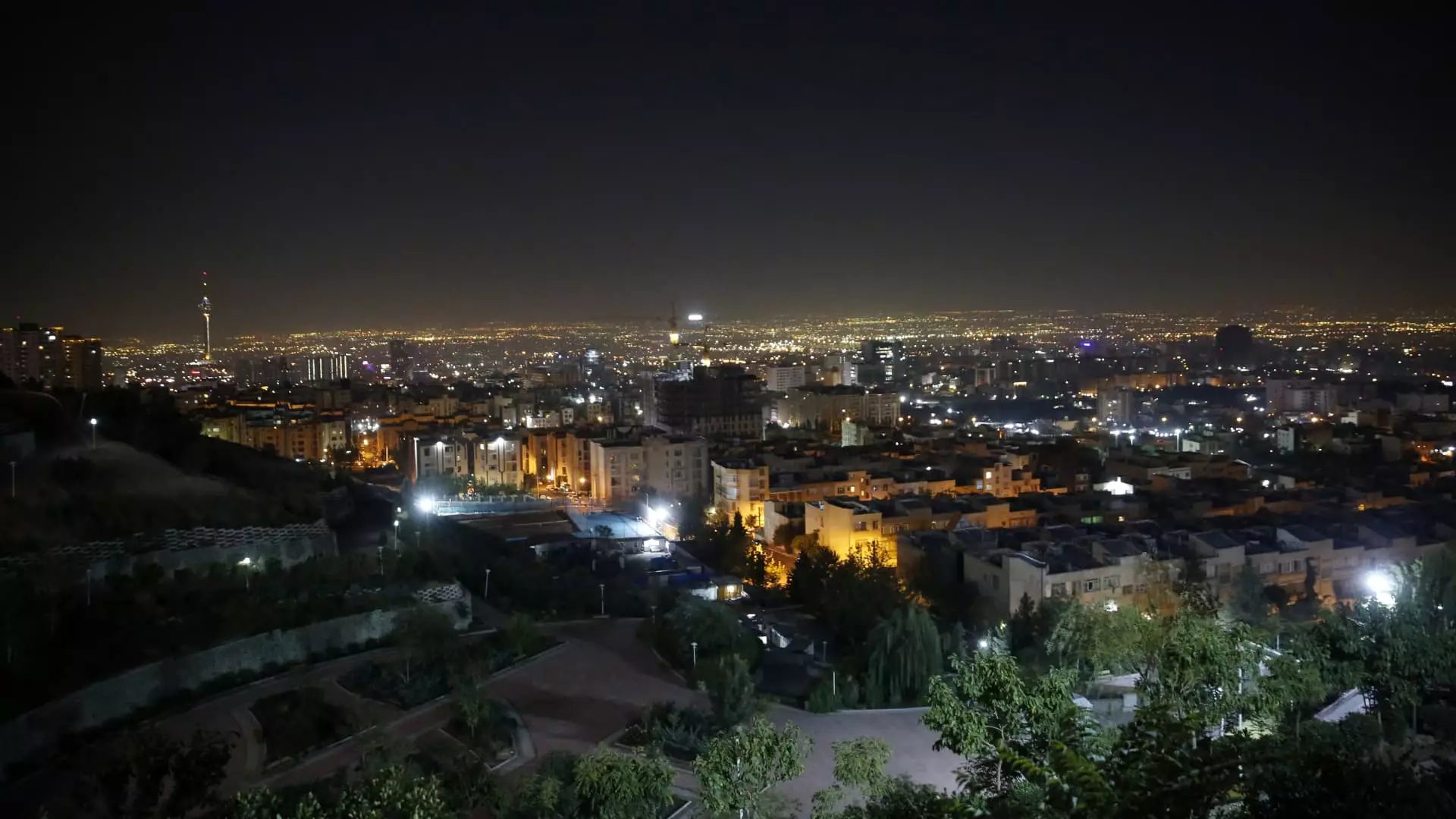The geopolitical landscape in the Middle East is characterized by its unpredictability, and the recent military action taken by Israel against Iranian positions only adds fuel to the fire. Early on a Saturday morning, Israeli forces conducted strikes on various military sites within Iran. This highly strategic military engagement appears to serve as a response to an earlier attack carried out by Iranian forces. However, in light of escalating tensions and the apprehensions voiced by allies and neighboring countries, Israel refrained from targeting Iran’s core oil infrastructure and nuclear facilities.
Israel’s military operations come after a series of aggressive moves originating from Iran, including an assault conducted on October 1, 2023, where approximately 200 ballistic missiles were launched into Israeli territory, fatally injuring one individual in the West Bank. The context surrounding these military actions stems from deep-rooted animosities, exacerbated by Iran’s backing of militant groups like Hamas and Hezbollah. This situation has escalated dramatically since the surprise attack on Israel by Hamas on October 7, 2023. The recent Israeli strikes, which included targeted assaults on missile factories and surface-to-air missile sites, highlight Israel’s attempt to diminish Iran’s military capabilities while avoiding a larger conflagration that could engulf the entire region.
Despite the forcefulness of Israel’s strikes, reports indicate a degree of strategic restraint, both in terms of chosen targets and the operational scale of the attacks. The Israeli military emphasized that these operations were carefully planned and executed, ensuring that critical energy infrastructure and nuclear sites were not engaged. This calculated approach aligns with the Biden administration’s public denouncement of any attacks on Iran’s nuclear capabilities, thus enabling Israel to maintain international support while asserting its right to self-defend.
The fact that Israel’s military operations involved multiple waves of airstrikes suggests a sophisticated operational strategy aimed at overwhelming Iranian defenses while simultaneously deterring immediate retaliation. Israeli officials conveyed that their military forces returned safely post-mission, indicating not just success in targeted objectives but also the efficacy of their operational planning.
Iran’s reaction to the Israeli strikes has been one of defiance and vigilance. Although Iranian state media reported that air defenses successfully engaged the incoming attacks, the acknowledgment of casualties and “limited damage” suggests that the impact of the Israeli strikes may have been more significant than Tehran is willing to admit. An Iranian news agency has cautioned that a “proportional reaction” is on the horizon, implying that further strikes against Iranian interests may soon follow, showcasing the high stakes involved when addressing the delicate Iranian-Israeli rivalry.
In this context, local media coverage showing normalcy in civilian life—such as footage from Tehran’s Mehrabad Airport—serves as a propaganda tactic to project stability despite the threat of military engagement. It sheds light on the psychological strategies utilized by both sides as they prepare for what could be a broader confrontation.
The recent airstrikes have not only amplified tensions between Israel and Iran but have also drawn international concerns, particularly from the United States and various Middle Eastern neighbors. U.S. officials, including President Biden, have urged restraint and signaled Washington’s determination to protect its allies without escalating tensions further. The involvement of Saudi Arabia, which has recently worked to mend relations with Iran, condemning Israel’s actions, illustrates the broader ramifications on Middle Eastern alliances and conflicts.
While Israel sought to reassure its citizens by signaling no immediate changes in public safety protocols, the situation remains fluid and dangerous. With the potential for a wider regional conflict looming over both nation-states, observers are acutely aware of the ramifications of any miscalculation by either side.
As negotiations for a ceasefire and potential hostage releases in Gaza loom, the shadow of escalating violence continues to darken the horizon in the region. The fallout from Israel’s military actions against Iran serves as a reminder of the delicate balance of power in the Middle East. With large-scale military operations taking place amidst an already volatile environment, the world watches closely, hopeful for diplomatic solutions but aware of the ever-present danger of further escalation. The consequences of these military confrontations will undoubtedly shape the geopolitical dynamics of the region for years to come.

